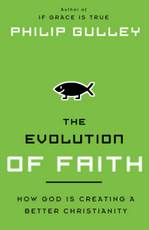Years ago I got a call from someone from one of the major LDS book publishers. (It’s been so long I can’t remember which – although it definitely wasn’t Deseret Books) They were planning on publishing a kind of Mormon dictionary that addressed many of the topics within Mormonism using short scholarly entries. The main emphasis was less the summation than to have a pretty thorough bibliography for each entry. They were calling me because several people had suggested that I was the best source for the topic of Mormon epistemology. Now I have to confess this never made much sense to me as I know there were many people better qualified. (It had already been years since I’d been in academia) I loved the idea of the project though so I agreed.
I spent several days at the library going through every book on Mormonism and all the articles from journals like Dialog, Sunstone, BYU Studies and others. Quite to my surprise there was a paucity of articles to select from. What was available (books like McMurrin’s The Theological Foundations of the Mormon Religion) were in my view pretty poor.
The project ended up coming to nothing but ever since then I’ve wondered why there was so little carefully written about Mormon ways of knowing. Now in recent years there has been a real blossoming of LDS Studies with theological and philosophy journals like Element not to mention interesting studies in other sources. Still despite a few papers (such as Dennis Potter’s work on reformed epistemology and LDS or Alexander Struk’s “The Hermeneutics of Testimony”) the question of Mormon ways of knowing hasn’t received the attention I think it deserves. (There are undoubtedly recent papers I’ve not read — I’ve been so busy I’ve not made it to the library in a few years to check sources I don’t read regularly)
What I want to do for my guest stint here is consider a little bit about LDS epistemology. I think it’s an important topic and further I think there are some interesting avenues open to Mormons.
To get started let’s get at what is at stake. We all recognize that some people’s beliefs are better supported than others. Typically when a belief is both sufficiently justified and true we call it knowledge. (There are a few quibbles with that definition but we’ll avoid those for now) With the rise of the modern era there was a lot of focus on when we know. The philosophical discussion of the topic is called epistemology. If you’re not that familiar with the topic I’d suggest checking out the Stanford Encyclopedia of Philosophy entry on epistemology. There are lots of topics within this study of knowledge that philosophers worry about. But I think it’s important to get at why this is really an issue.
As I said we all recognize that some people who claim knowledge don’t have it. Typically it’s because the reasons for why they believe are insufficient. For instance someone might take some alternative medicine to cure a cold. They get better so they think the “medicine” they got cured them. But instead it just turns out that most people would get better about the same time whether they took this alternative medicine or not. They think they have justification but really don’t.
There are lots of reasons why people think they know when they don’t have good justification. The most common is that they just never learned to think critically. Most people believe things for poor reasons. Society has progressed a lot the last few hundred years in that more people reason in better ways. We’re more skeptical but also more thoughtful. Further the typical person in our society knows a lot more now than the typical person from a few hundred years ago. That said even today people often think they know when the justifications for their beliefs are pretty bad.
Some might say that we have to explain how all Mormons justify their beliefs. I don’t think that’s necessary. I’m sure plenty of Mormons reason in pretty poor ways. After all as I said people in general reason poorly. What I think we do have to explain is how someone can be a critical thinker and have justification for their main religious beliefs. I don’t think we have to explain how every or even most Mormons reason. I do think we have to show that it is possible for Mormons to be justified in our beliefs and also explain how at least a reasonable number of Mormons actually do reason in this way. Ideally we’ll also show that many Mormons actually do reason about their religion in a justifiable way – although I’m not sure that’s completely necessary. (If it turned out 60% of Mormons believed some of our main religious tenets for bad reasons would that say much about Mormonism?)
I think there are some avenues open for doing this that haven’t been considered. What I’ll do in my first real post on the subject is investigate one common approach to epistemology by religious believers called Reliabilism and why I think it doesn’t really work and also why it doesn’t explain Mormon practice.











